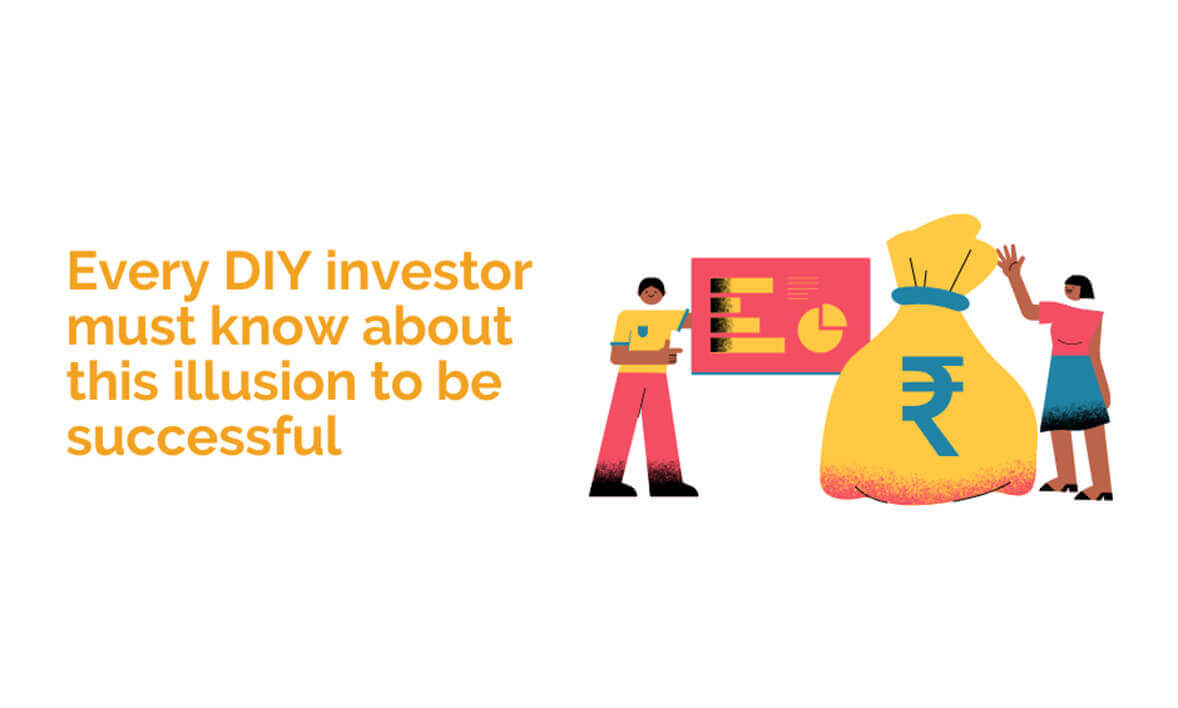Every DIY investor must know about this illusion to be successful
These days, most of us tend to believe that we have some expert-level knowledge due to our access to instant information from search engines like Google.
This creates an illusion of expertise and deludes us with surface-level understanding and confirmation bias, making us feel sure about our views.
Nowhere is this phenomenon as widely prevalent than in the field of investing and, possibly, self-medication.
Illusion of Expertise
Enter the Dunning-Kruger effect, a cognitive bias where those with limited knowledge or skill believe they're much more competent than they are.
It is named after two psychologists, David Dunning and Justin Kruger, who said the inability to recognise deficiencies in one's competence lead most people to select what they believe to be the most reasonable and optimal option.
It's like thinking you're a master chef after watching a couple of cooking shows, only to end up with a kitchen disaster!
Some of you would have heard of retail investors who have lost money trading derivatives.
What's the Dunning Kruger Effect All About?
In a nutshell, it's about overestimating one's abilities.
Picture this: you've just started dabbling in the stock market.
A few wins here and there, and voilà! You're on top of the world, thinking, "Who needs a financial advisor when I've got this?"
But here's the issue: the market's a noisy place, and you need the right expertise to hear your own thinking.
The Perils Lurking in the Shadows
This article is about something other than dissuading you from taking charge of your finances. But, and it's a big BUT, diving headfirst into choppy markets without a life jacket? That's asking for trouble.
Overconfidence can lead to rash decisions, and before you know it, your hard-earned cash goes down the drain.
Psychology Behind Investment Decisions
Have you ever wondered why some of us keep making the same investment blunders repeatedly?
It is not just about the numbers. It's also our head! Behavioural finance delves into the psychological factors affecting our financial decisions. And guess what? Our brains are wired with biases that can lead us astray.
Why We Think We're Smarter Than We Are
It's human nature to want to pat ourselves on the back. But when it comes to investing, this self-assuredness can be our downfall.
The Dunning Kruger effect plays tricks on our minds, making us believe we're the next Warren Buffet when, in reality, we might be making rookie mistakes left, right, and centre.
Knowledge is Power, But Self-awareness is King
We've established that the Dunning Kruger effect can throw a wrench in our investment plans. What's the way out? Simple. Know thyself.
Recognizing our limitations is half the battle won. So, the next time you're about to make an investment move, step back and ask yourself, "Do I really know what I'm doing?"
Seeking Guidance Doesn't Mean You're Weak
Many of us think seeking help is a sign of weakness. Or we shy away from asking questions.
Even the best in the business have mentors. So, it's okay to seek guidance if you're feeling out of your depth. Remember, it's your hard-earned money on the line.
Seek the help of SEBI-registered intermediaries and advisors.
The Realities of Self-Investing
There could be times when fund managers lag the market and continue to charge fees despite the underperformance.
Or, you could wonder whether investment advisors add any value, especially when your investments could be doing better.
But is the solution to DIY?
While some DIY investors have beaten fund managers, remember what the Greek philosopher Aristotle said: “One swallow does not a summer make.”
Challenges of DIY Investing
Successful investing has many ingredients.
Individuals who choose to invest on their own must not only have sufficient expertise in capital markets but also portfolio management, tax planning and wealth management.
There is also the challenge of ensuring that your goals align with your capital.
A financial planner could help here. The Dunning-Kruger effect suggests we have no idea how much we do not know.
Emotions play a significant role in our investment decisions.
The thrill of a stock going up, the panic when the market crashes, or the FOMO (Fear of Missing Out) when a new investment trend emerges can cloud our judgment.
Smart Investing Minus the Ego
The world of DIY investing is chock-full of opportunities and pitfalls.
While the Dunning-Kruger effect might make us feel invincible, keeping our feet firmly on the ground is essential.
The financial world is ever-evolving.
The contours of the investment landscape are constantly changing with new trends, financial instruments, and global events.
Continuous learning and staying updated is the key. Relying solely on past knowledge without updating oneself is a recipe for disaster in DIY investing.
So, the next time you're about to dive into the investment pool, don't just dip your toes—arm yourself with knowledge, self-awareness, and maybe a bit of expert advice.
After all, isn't it better to be safe than sorry?

